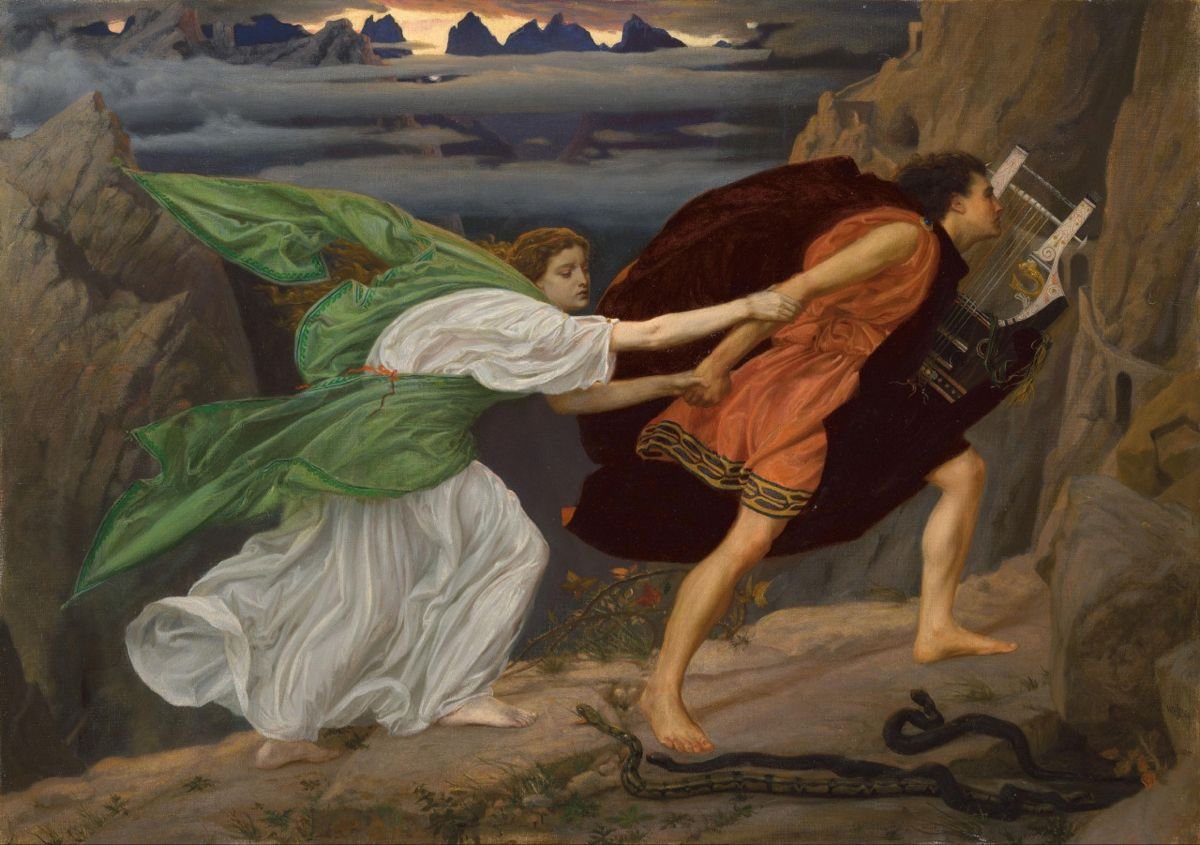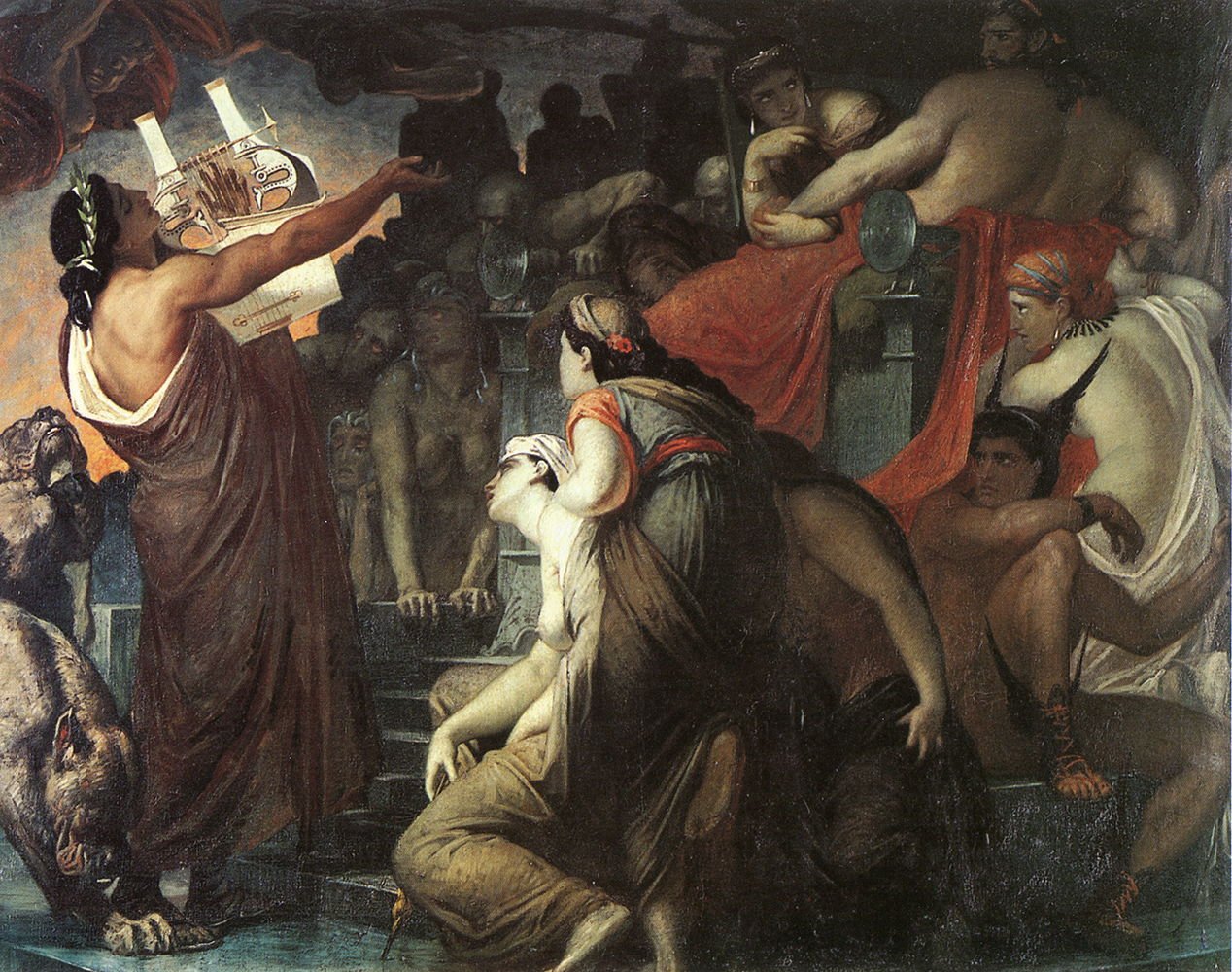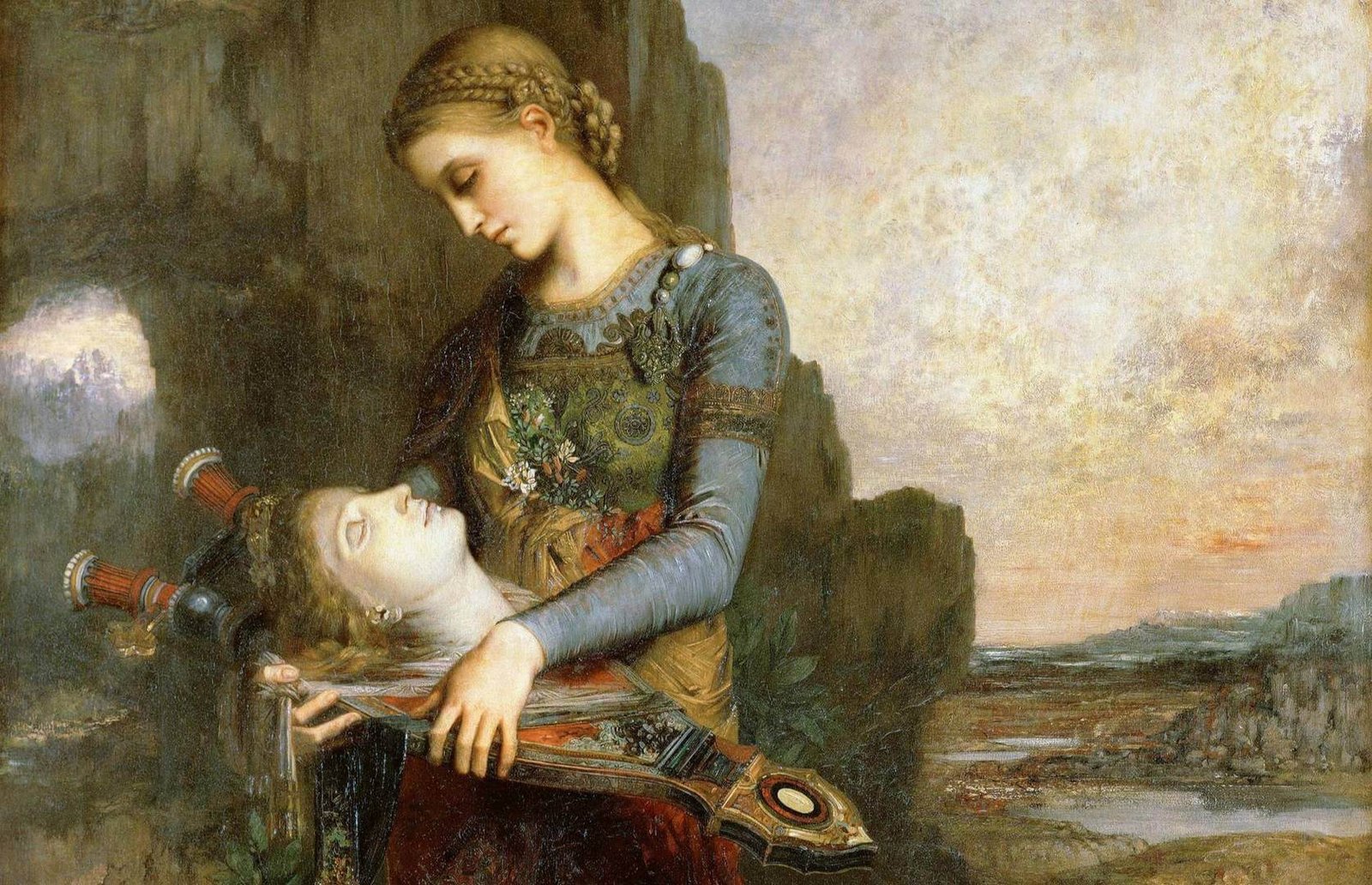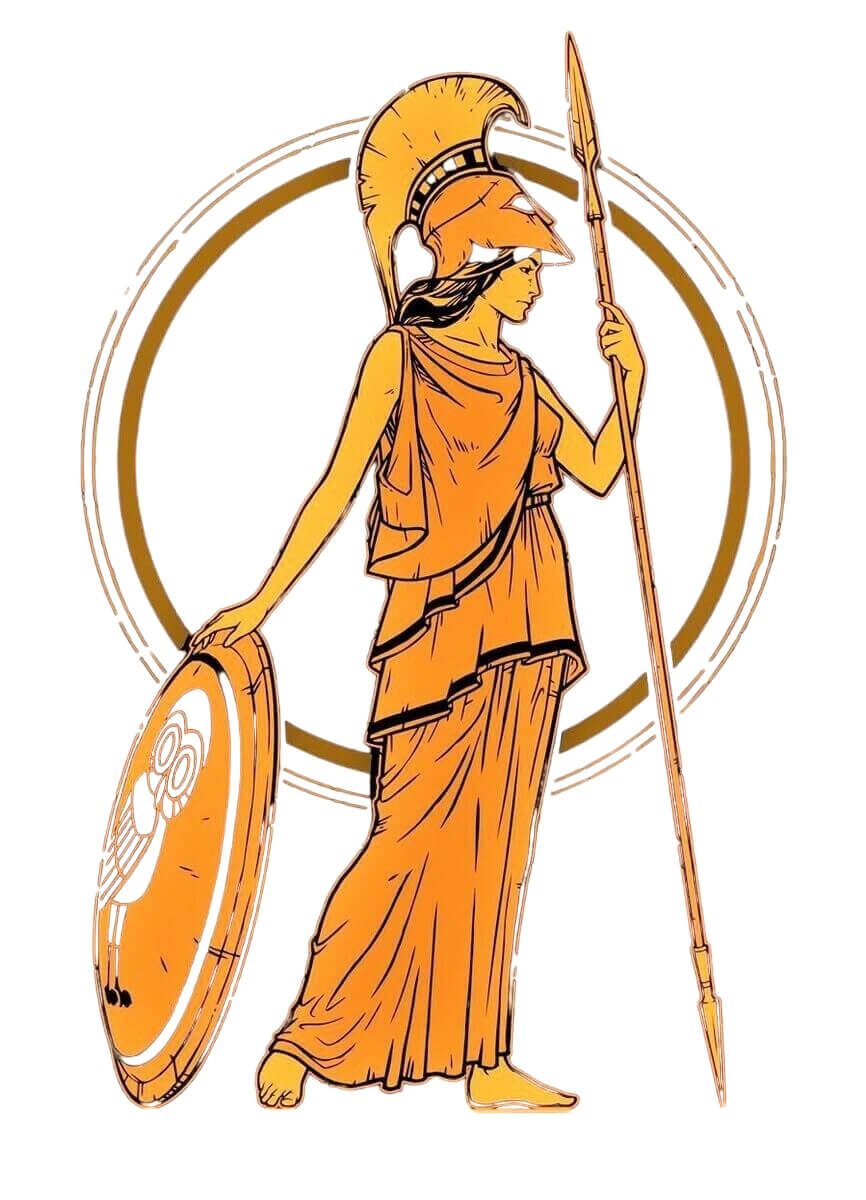Orpheus: The legendary singer

In Greek Mythology, Orpheus was the legendary bard and celebrated singer, who tried to resurrect his wife Eurydice, traveling to the Underworld and convincing the god Hades to release the shadow of his beloved. He had the gift of magical, astonishing voice, which allowed him to enchant all living creatures and also to move stones.
The marvelous lyre of Orpheus
Orpheus was a son of Thracian king Oeagrus, and muse Calliope. His mother rejoiced, when he was born and gave him the best gift that she could – a voice of marvelous, outstanding beauty. When he grew up a little bit, the golden-haired Apollo himself had him as an apprentice. The god of sunlight, music and poetry taught Orpheus all the tricks and secrets of music.
When Orpheus played the lyre or sang, people felt so charmed, that they could not stop listening. And not only people, since Orpheus had the ability to allure animals, birds and all other living things. The branches of trees were bowing to the singing Orpheus and even the stones tried to roll closer to him. Furthermore, the rivers stopped their flow and listened to the singer, trying not to miss any single sound. Everyone was captivated by the magic power of his voice.
The love of Orpheus and Eurydice
Once the beautiful nymph Eurydice heard Orpheus singing and fell in love with him. She could observe for hours the way he tinkled the strings of his lyre, listening to the enchanting sounds of his voice. Orpheus also fell in love with her. Now they were always together, the singer fell asleep and woke up with her name on his lips. He dedicated his best songs to their extraordinary love. When they decided to become husband and wife, the immortal gods themselves feasted at their wedding. Orpheus and Eurydice felt immensely happy. Day after day their matrimony had flown further, bringing nothing but joy and love.
The death of Eurydice
However, the happiness of Orpheus did not last long. One day Eurydice wandered through a beautiful forest glade, picking flowers and waiting for her beloved husband. The sun warmed gently, and all the living things rejoiced at its life-giving rays. Even the snake left its cold lair and got out to bask in the sun. Eurydice did not notice her and stepped on her tail. The snake hissed furiously and bit the young nymph in the leg. The poison made an instantaneous effect. Thus, Eurydice fell on the green grass, whispering the name of her husband and died.
The other nymphs gathered around her, crying, and grieving about her sudden death. Swift-winged birds brought mournful news to Orpheus, so he hurried to the place where the misfortune had occurred. Like a madman, he rushed to the corpse of his beloved. He wanted to die next to her and his grief had spread towards nature. Thus, all living things mourned Eurydice as well. A deep sadness settled in Orpheus’ heart. He could not stay in the house where he lived so happy with his wife. He could no longer sing wonderful songs, hence only sad sounds were made by his lyre.
Orpheus travels to the underworld

Orpheus realized that he could not live without Eurydice any longer. Thus, he decided to travel to the gloomy kingdom of Hades, there dwelled the souls of the perished. The entrance to the underworld had place in the very south of Hellas.
Nonetheless Orpheus crossed the gates of the dead and reached the doleful waters of the underground river Acheron. The shadows of the dead crowded on its shore, waiting for the ferryman Charon to carry them by boat to the other part of the river. The boatman denied access to Orpheus at first, but he had taken the lyre and began to play, so wonderfully that Charon did not care anymore and allowed him to be a passenger.
On the other shore the singer went straight to the palace of Hades. He found the lord of the dead, sitting on its golden throne, next to his queen, the goddess Persephone, Orpheus struck the strings harder and made the music become louder. He sang about his wife and love, which bound them forever. About the happy, springful days, when they lived together. He sang about the bitterness of loss, the torments and suffering he had endured ever since the moment she died… So beautiful and touching was his singing, that Persephone and Hades seemed to be softened and impressed.
Hades condition
When Orpheus stopped singing, Hades had asked him about the reason of his visit. At that time the bard pleaded to release his wife. The Lord of the dead agreed to help, but only with one strict condition: Orpheus was not allowed to look backwards at his beloved, on his path towards the surface. If he glanced at least once at the shadow of Eurydice, she would disappear forever into the underworld.
Orpheus tries to recue Eurydice
Orpheus hurried on his way back. Further and further away he walked from the palace of Hades along the path, leading to earth. Orpheus did not hear any footsteps behind him. Since the shadows are disembodied, they do not make a sound, while walking. Was Eurydice following him? Perhaps she got lost or fell behind and stayed in the underworld?
Orpheus reached the opening of the cave, but could not stand it anymore and glared backwards. He saw the shadow of Eurydice, but only for a brief moment. Her soul flew back into the darkness of eternal night and disappeared forever. The legendary bard called for his wife and ran after her to the shores of Acheron, but everything had been in vain.
The Death of the singer

Several years had passed since Eurydice’s death, but Orpheus still remained faithful to her. He did not even want to look at any woman. He rejected their love and affection, although many of them wanted to share their tenderness and amorous passion. Otherwise, the saddened bard preferred young boys as lovers, thus the Maenads attacked him because of it (Ovid, Metamorphoses). The frenzied women hurled many stones at the poet and tore his body apart, throwing his head and lyre into a river.
Orpheus and Eurydice in the underworld
The river carried the head of Orpheus and his lyre into the sea and the sea washed them up on the island of Lesbos. The Greeks buried the head of the artist here. Thereafter the most beautiful songs in the world could be heard on Lesbos. Furthermore, many famous singers and poets were born on the island.
However, the immortals became angry at the mad Maenads for their evil deed. Thus, Dionysus turned them into trees. They remained standing forever in the place, where they had been caught by the wrath of their master.
In regard to Orpheus, his shadow descended into the kingdom of Hades. Thereafter he met his beloved Eurydice again and embraced her in a tender cuddle. They lived inseparable ever since. They can be seen, wandering forever through the fields of the gloomy underworld, and Orpheus is free to look back without a fear of losing his cherished lovely nymph.
